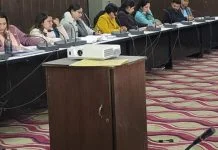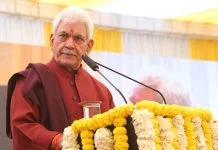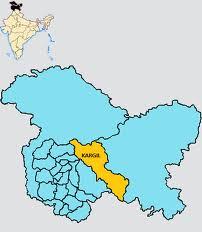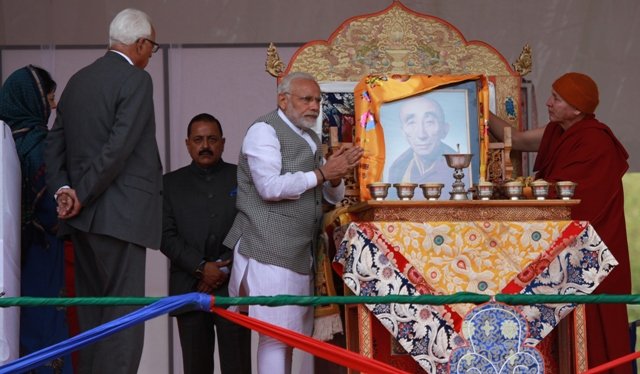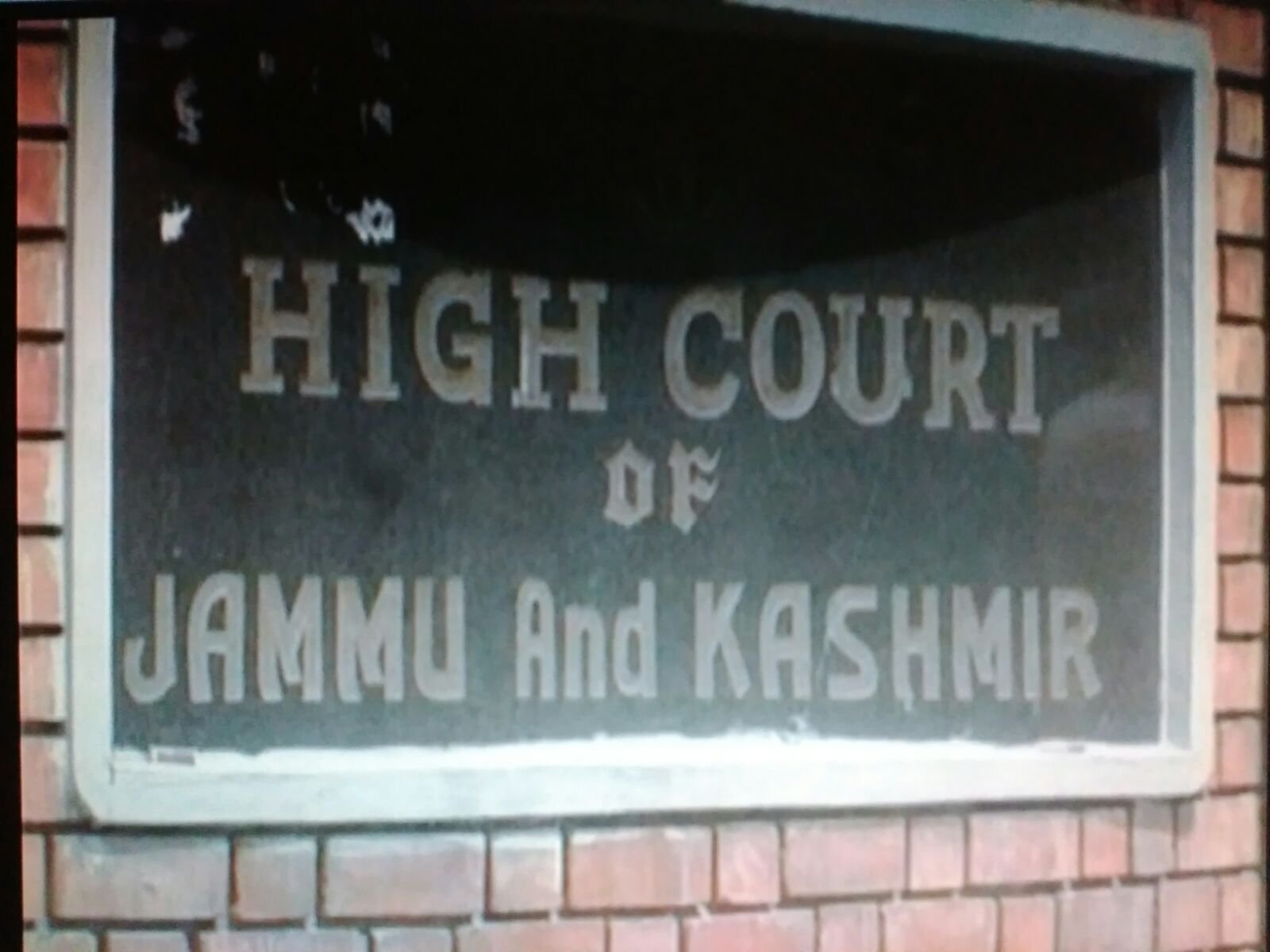In a landmark judgment, Jammu and Kashmir High Court has ruled that Article 370 granting special status to Jammu and Kashmir State has assumed place of permanence in the Constitution, stating that the feature is beyond amendment, repeal or abrogation.
“Article 370 though titled as “Temporary Provision” and Included in Para XXI titled “Temporary, Transitional and Special Provisions” has assumed place of permanence in the Constitution,” a division bench of Justice Hasnain Massodi and Justice Janak Raj Kotwal ruled in a 60-page judgment. “It is beyond amendment, repeal or abrogation, in as much as Constituent Assembly of the State before its dissolution did not recommend its Amendment or repeal,” the court added.
The Court made it clear that the President under Article 370 (1) is conferred with power to extend any provision of the Constitution to the State with such “exceptions and modifications” as he may deem fit subject to consultation or concurrence with the State Government.
“And such power would include one to amend or alter the provision to be applied, delete or omit part of it, or make additions to the provisions proposed to be applied to the State. Such power would extend even in case of provisions of the Constitution already applied,” the court held.
In the circumstances, the court said, additions made to the existing Constitutional provisions through various Constitution (Application to Jammu and Kashmir) orders on their application to the State like Proviso to Clause (2) Article 368, fall within four corners of Article 370(1).
“The President has, therefore, while adding proviso to Clause (2) Article 368, in effect, provided that amendment to any Constitutional provision, though earlier applied to the State, would not apply to the State except by an order issued in accordance with mechanism devised under Article 370, acted within his powers under Article 370(1),” the court said.
Resultantly, it said, “Amendment to Article 16 of the Constitution, made by 77th Amendment Act adding clause (4A) to it, is not applicable to the State, in as much as, the amendment has not been applied to the State by President as provided under Clause (1) Article 370 read with proviso to Clause (2) Article 368”.
Underling that Jammu and Kashmir while acceding to Dominion of India, retained limited sovereignty and did not merge with Dominion of India, like other Princely States, the court held that “State continues to enjoy special status to the extent of limited sovereignty retained by it.”
“The limited sovereignty or special status stands guaranteed under Article 370 – the only provision of the Constitution that applied to the State on its own. The only other Constitutional provision made applicable by Article 370 of the Constitution to the State is Article 1. No other provision of the Constitution as provided under Article 370 (1), would be applicable to the State except, by Presidential order in consultation with the State in case the provision is akin to subjects delineated in Instrument of Accession and with concurrence of the State, in case it does not fall within ambit of Instrument of Accession,” the court said.
It added: “The Constitutional framework worked out by Dominion of India and the State reflected in Article 370 has its roots in paras 4 and 7 of Instrument of Accession”.
“The other facet of the Constitutional arrangements agreed upon, related to special status of the State, allowing it to exercise powers on the subjects that in case of other States were within exclusive domain of the Union Government, and restricting power of the Union Government to legislate on such subjects, by making it subject to consultation or concurrence of the State Government within the meaning of paragraph (ii) of sub-clause (b) of clause (1) or in the second proviso to sub-clause (d), Article 370,” the court said.
In terms of Article 370, the court said, Parliament’s legislative power over the State is primarily confined to three subjects mentioned in the Instruments of accession — Defence, Foreign Affairs and Communications.
“The President, however, has power to extend to the State other provisions of the Constitution as also other laws that relate to the subjects specified in the Instrument of Accession. While extending such provisions and laws, the exercise of the power involves consultation with the State Government.”
In such matters, it said, only “consultation” is required as the “State is taken to have accepted the Instrument of Accession, therefore, dispensing with the requirement of concurrence”.
“The President has even power to extend other provisions of the Constitution or other laws not related to subjects enumerated in the Instrument of Accession to the State provided the State Government gives concurrence to extension of such Constitutional provisions, application of laws. In other words, laws on subjects included in the Union List and Concurrent List may be extended in consultation with State Government while laws on other subjects are to be extended to the State only with concurrence of the State Government,” the court said.
Underscoring that Article 370 of the Constitution embodies conceptual framework of relationship between Union of India and State and lays down broad features of special status granted to the State, the court held that “as already pointed out, at the same time it confers power on the President to deal with the areas otherwise within domain of the State, subject to consultation or concurrence with the State.”
“Article 370 is the only provisions of the Constitution that applies to the State, on its own. The only other provision applied to the State by the Constitution itself, is Article 1 made applicable by sub clause (c) clause (1) Article 370,” it said.
“The Constituent Assembly in terms of proviso to Clause (3) Article 370 is conferred with power to recommend to the President that Article 370 be declared to cease to be operative or operate only with the exceptions and modifications mentioned in the recommendation, if any so made.”
The court pointed out that it is only on such recommendations that the President in terms of Clause (3) Article 370 of the Constitution may, by public notification, declare that Article 370 shall cease to be operative or shall be operative only with such exceptions and modifications and from such date, specified in the notification.
“The Constituent Assembly did not make such a recommendation before its dissolution on January 25th, 1957,” it said. “Resultantly, Article 370, notwithstanding its title showing it a “temporary provision” is a permanent provision of the Constitution. It cannot be abrogated, repealed or even amended as mechanism provided under Clause (3) of Article 370 is no more available.”
“Furthermore, Article 368 cannot be pressed into service in this regard, inasmuch as it does not control Article 370 – a self contained provision of the Constitution”.
The Court said President of India, in exercise of powers under Article 370 (1) (d), has issued Constitutional (Application to Jammu and Kashmir) orders from time to time applying various Constitutional provisions to the State with exceptions and modifications.
First such order, it said, was made on January 26th 1950. This was followed by Constitutional (Application to Jammu and Kashmir) Order, 1954.
“The Order applied various Constitutional provisions with modifications, detailed therein, to the State. The Order did not only modify text of Constitutional provisions applied to the State but in case of some of such provisions, deleted part of text, added to the text, or added provisos to existing Constitutional Orders. It even added new Article like Article 35A to the Constitution in its application to the State,” the court said.
“The State as on date continues to enjoy autonomy in areas covered by the provisions of Constitution not extended to the State. Most of the provisions of the Constitution applied to the State are extended with exceptions and modifications to maintain and preserve special status granted to the State.”
To suit autonomy granted to the State, the court said, provisions like Article 35A and proviso to Article 253 and proviso to Clause 2 Article 368 have been added to the provisions of Constitution, as applied to the State.
“The Article 35A gives protection to existing laws in force in the State and to any law enacted after 1954 by the State legislature, defining the classes of persons treated as permanent residents of the State, conferring on permanent residents any special rights and privileges or imposing upon other persons any restrictions as respects employment in the State Government, acquisition of immovable property in the State, settlement in the State or right to scholarship and other aids granted by the State”. by “The Constitution (Application to Jammu and Kashmir) Order, 1954, applied Article 368 to the State with the condition that no such amendment shall have effect in relation to State of Jammu and Kashmir unless applied by the order of the President under Clause (1) Article 370”.





